Two ophthalmologists from the Emory Eye Center share their three-year experience of treating refugees in the camps in Jordan.
Jordan currently hosts an estimated 1.4 million Syrian people who have fled the war in their home country. Cataract & Cornea Surgeon Soroosh Behshad and Paediatric Ophthalmologist Natalie Weil from Emory Eye Center in the US have travelled to Jordan multiple times since January 2017 to provide eyecare to refugees.
Their work has shown that over 60% of blindness in this population can be reversed with cataract surgery or eyeglasses. Since 2017, Behshad, Weil and their team have performed more than 3642 eye exams and 718 surgeries and procedures, with more than half of these patients being children.
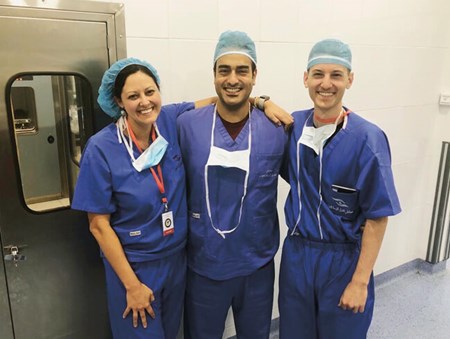
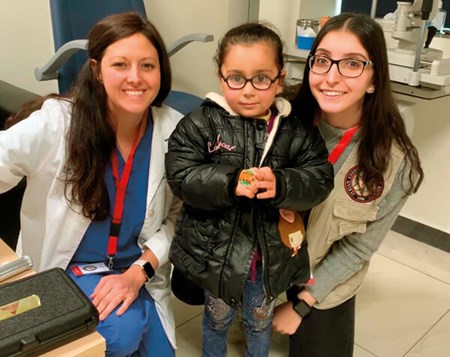
Collaboration is key
Weil and Behshad have mostly worked in the Za’atari refugee camp, in partnership with international non-governmental organisations (NGOs) the Syrian American Medical Society (SAMS), Arabian Medical Relief (AMR), Jordanian Ophthalmology Society (JOS) and Orbis International. Za’atari is the largest Syrian refugee camp, home to more than 80,000 refugees, more than half of whom are children. The camp stretches over three square miles of desert and qualifies as the fourth largest city in Jordan. It is gradually evolving into a permanent settlement, with residents moving from living in tents to shelters made from corrugated metal containers.
Initial visits focused on providing cataract surgery, eye injections and laser procedures. Then in July 2017, in response to the large incidence of undiagnosed and untreated amblyopia and other childhood eye conditions, Behshad and Weil set up a paediatric vision screening program.
Forging relationships with local ophthalmologists, hospitals and NGOs has been essential to the success of the work and to creating a valuable foundation for building a more sustainable program. SAMS has been instrumental in providing a network of translators, volunteers and clinic space which has been used to screen and coordinate care for thousands of patients. Weil and Behshad work closely with other international nonprofit groups, including Doctors Without Borders / Medecins Sans Frontieres and UNHCR (the UN Refugee Agency), who refer patients to the Emory / SAMS team for surgical care. A network of local doctors ensures all patients are followed-up by an ophthalmologist after their surgeries. Ultimately, the team hopes to develop a replicable and sustainable model for vision screening that would help identify and treat ophthalmic pathology in paediatric mobile populations.
“Working in conjunction with paediatricians allows us to reach more patients,” Weil says. “After identifying patients who failed a vision screening, we complete a full eye exam and provide patients with the appropriate glasses or patching, if needed. We’ve been fortunate to work with Patch Pals, a group that has donated reusable cloth patches for all the refugee children who need amblyopia therapy.”
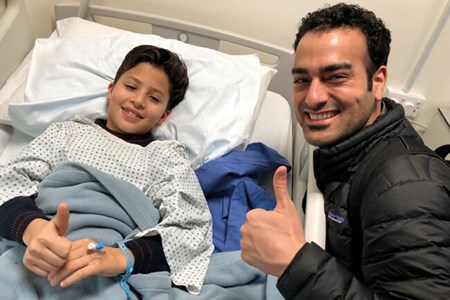
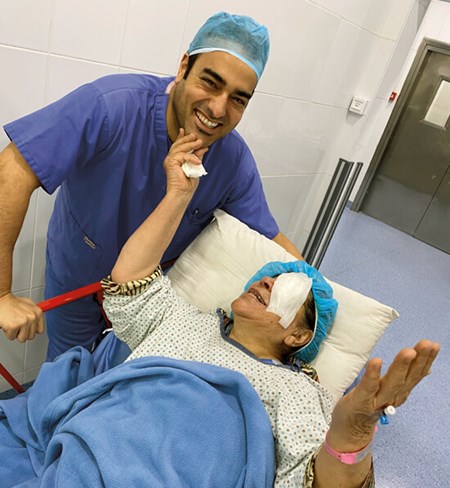
A life-changing difference
Vision screenings have identified patients with a range of vision problems, including inherited retinal dystrophies, juvenile cataracts, active ophthalmic infections, congenital eye-related conditions and strabismus.
When they are in Jordan, Behshad and Weil see hundreds of patients and perform 20 to 30 eye surgeries each day over a week-long period. Their biggest reward comes from seeing what a life-changing difference care can make for some patients.
Hajjeh was a mother displaced by the Syrian war who relocated to Za’atari to keep her family safe. “She was permanently blind in her right eye due to complications from cataract surgery performed before the war,” says Behshad. “She was fearful from this experience so had avoided surgery to correct the cataract in her left eye. The cataract had progressed to the point that she was legally blind in that left eye as well. She was dependent on a cane and her family to navigate around her tent and was unable to perform basic daily activities without assistance. She reluctantly agreed to proceed with the cataract surgery. Her vision was restored to 20/20 in that eye and for the first time in years she was able to walk independently.”
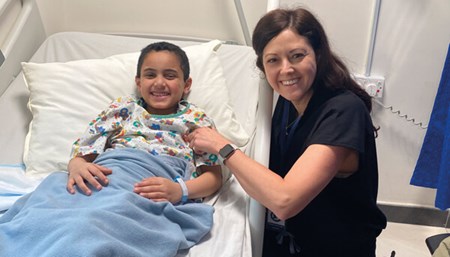
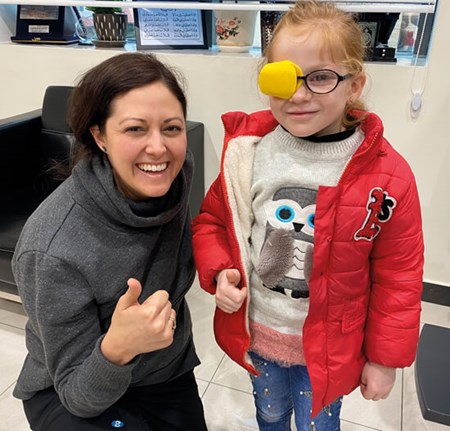
“Many patients walk into the clinic dependent on their family members to help them navigate due to their poor vision,” he continues. “The day after surgery they’re able to get around safely because their vision is restored. That, and the huge smiles on their faces when they learn we’ve travelled all the way from America to treat them, is priceless.”
A new program launched in 2019 that allows Emory ophthalmology residents to participate in this important humanitarian work. JP Gorham, the Eye Center’s Chief Resident, spent a week in Za’atari refugee camp with Behshad and Weil in July 2019. He worked alongside Behshad and Weil to screen and examine paediatric patients, identify children who needed glasses or surgical intervention, and help facilitate their care.
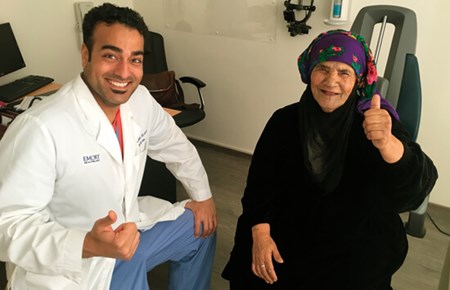
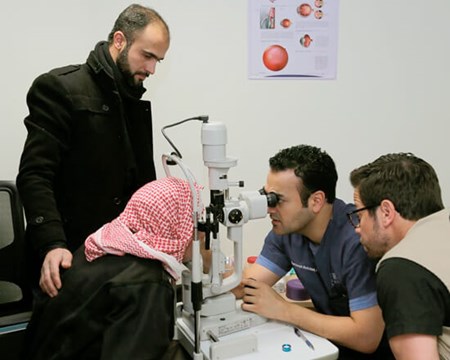
He reflects on his experience: “I learned that the two-dimensional pictures you see from the camps do not capture the whole story. It’s true that as you enter the refugee camp the scene looks very bleak. Massive barbed wire fences line the border of the camp and army tanks are scattered throughout. In spite of these living conditions, the Syrian refugees we worked with welcomed us each day with warmth and hospitality. We worked with children who were bubbly and smiling. At the end of the clinic day, one of the volunteers would run across the street and buy huge platters of fresh falafel from a proud shop keeper.
“The severity of the Syrian crisis is undeniable. But it’s not all tanks and barbed wire; the refugee community here is still creating meaning from the world around them.”
Eye News would like to thank Emory Eye Center for the content of this article. Photos provided by Soroosh Behshad and Natalie Weil.
Emory Eye Center is a leading US comprehensive clinical eyecare facility that provides patient care, educates and trains eye professionals and conducts ocular research.
COMMENTS ARE WELCOME





